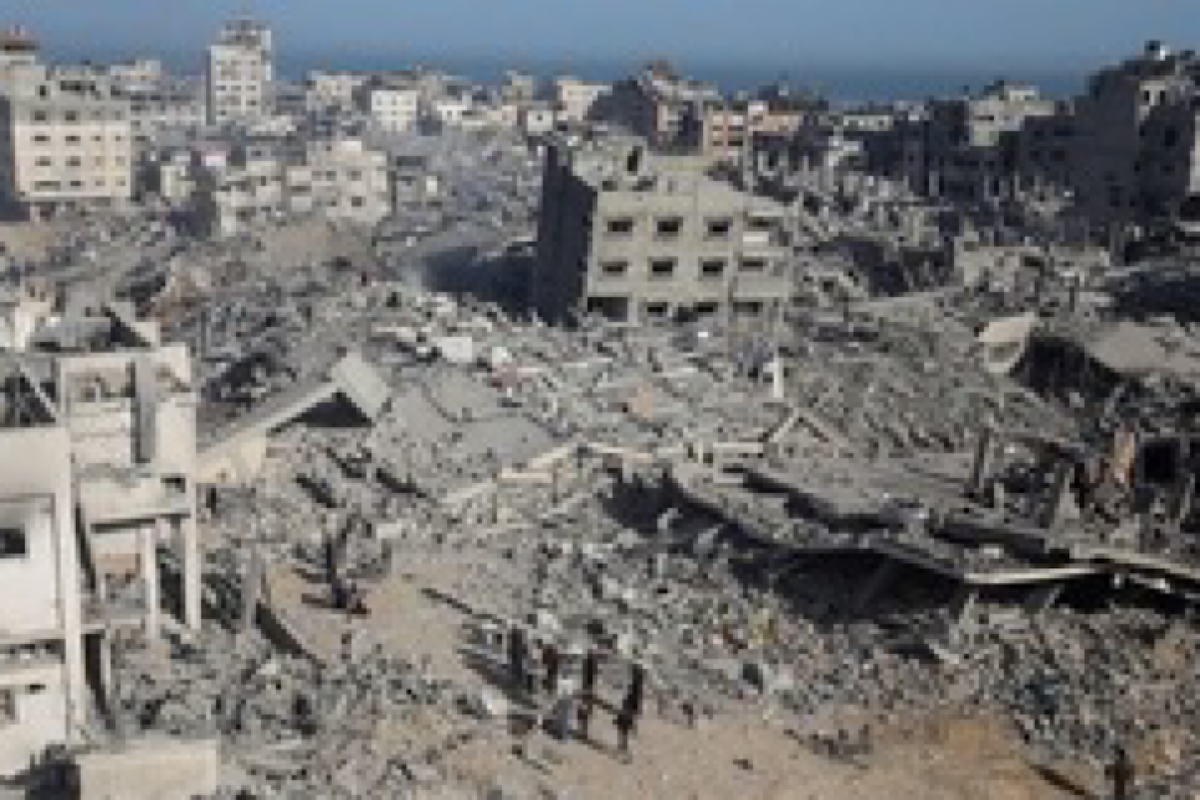Six hostages released by Hamas in latest swap
Six Israeli hostages previously held by Hamas were released on Saturday as part of an ongoing ceasefire exchange, the Israel Defense Forces (IDF) confirmed in a statement.
In the wake of the tragic drone strikes on aid workers in Gaza, the Israeli military’s swift dismissal of two officers and reprimand of three others may seem like a step towards accountability.

Representation image
In the wake of the tragic drone strikes on aid workers in Gaza, the Israeli military’s swift dismissal of two officers and reprimand of three others may seem like a step towards accountability. Yet, it is merely a band-aid on a much deeper wound that continues to fester in conflict zones around the world.
This incident is not an isolated event but rather a symptom of a larger problem: the failure to adequately protect civilians and aid workers amidst the chaos of war. The Israeli military’s admission of fault is welcome, but it cannot erase the pain of the lives lost or the trauma inflicted on those who survived. At the same time, given the nature of the attacks on Gaza, it was only a matter of time that such an event would occur. The international community must recognise that this tragedy is not unique to Gaza. Similar atrocities occur in conflicts across the globe, from Syria to Yemen to Myanmar.
Advertisement
Innocent lives are cut short, humanitarian efforts are hindered, and the cycle of violence perpetuates. What is needed is not just accountability for individual actions, but systemic change. Rules of engagement must be rigorously enforced, with a zerotolerance policy for targeting civilians or aid workers. Military personnel must undergo thorough training on identifying legitimate targets. Moreover, there must be greater transparency and oversight in military operations. Independent investigations should be conducted whenever civilian casualties occur, and those responsible must be held accountable, regardless of rank or status. This is essential not only for justice but also for rebuilding trust with affected communities and fostering long-term peace.
Advertisement
The international community must play a more active role in protecting civilians and upholding humanitarian principles in conflict zones. Diplomatic pressure, economic sanctions, and peacekeeping efforts are all tools that can be leveraged to prevent further bloodshed. But perhaps most importantly, we must confront the underlying causes of conflict and address the root issues that perpetuate violence. Poverty, inequality, political instability, and sectarian tensions are all fuel for the fire of war. Investing in education, economic development, and conflict resolution initiatives can help break this cycle of violence and pave the way for a more peaceful future. We must also acknowledge the invaluable role of humanitarian organizations like World Central Kitchen, whose brave workers risk their lives to provide aid to those in need.
Their dedication and selflessness remind us of the importance of upholding humanitarian principles even amidst conflict. As we move forward, let us honour their sacrifice by redoubling our efforts to protect and support those on the front lines of humanitarian work. In the aftermath of the Gaza drone strikes, there is an opportunity for reflection and action. We must seize this moment to demand accountability, advocate for systemic change, and reaffirm our commitment to protecting the most vulnerable in times of crisis. Only then can we hope to build a world where tragedies like this do not recur.
Advertisement